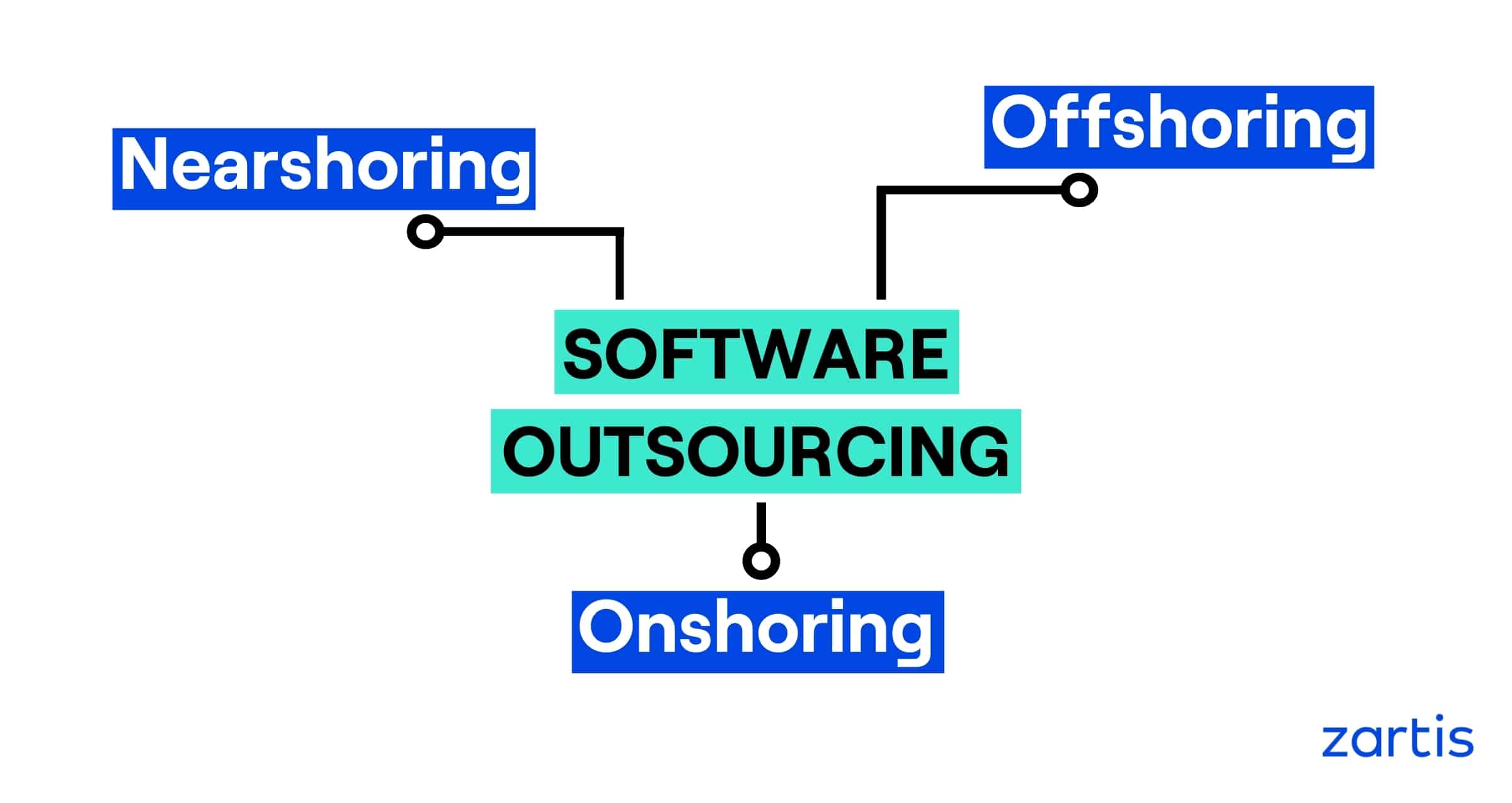Onshoring software services company sets the stage for this enthralling narrative, offering readers a glimpse into a story that is rich in detail and brimming with originality from the outset. This topic delves into the intricate process of setting up, hiring practices, and managing operations of an onshore software services company, providing valuable insights for businesses looking to thrive in the industry.
Overview of Onshoring Software Services Company

Onshoring in the context of software services refers to the practice of outsourcing software development tasks to a company within the same country as the client. This means that the work is not offshored to a different country but is kept within the local borders.
There are several benefits of onshoring software services for a company. One key advantage is the proximity to the client, which allows for better communication, collaboration, and understanding of project requirements. Onshoring also ensures better alignment with the client’s business practices, culture, and time zones, leading to improved efficiency and productivity.
Key Factors to Consider When Deciding to Onshore Software Services
- Cost-Effectiveness: While onshoring may be more expensive than offshoring, the benefits of quality, communication, and efficiency can outweigh the cost difference.
- Talent Pool: Evaluate the availability of skilled professionals in the local market to ensure that the onshore team can meet the project requirements effectively.
- Legal and Regulatory Compliance: Ensure that the onshore company complies with all legal and regulatory requirements, especially in terms of data privacy and security.
- Cultural Fit: Consider the cultural compatibility between your company and the onshore team to foster a harmonious working relationship and successful project outcomes.
- Risk Management: Assess the risks involved in onshoring, such as potential disruptions or unforeseen challenges, and have contingency plans in place to mitigate these risks.
Setting Up an Onshore Software Services Company
When establishing an onshore software services company, there are several important steps to consider. From legal and regulatory requirements to the necessary infrastructure, careful planning is essential for success in this industry.
Legal and Regulatory Requirements
Before launching an onshore software services company, it is crucial to ensure compliance with all relevant laws and regulations. This includes obtaining the necessary business licenses, permits, and certifications. Additionally, it is important to register the company with the appropriate government authorities and comply with tax regulations.
Infrastructure Needs
Creating a successful onshore software services company requires the right infrastructure. This includes setting up a well-equipped office space with the latest technology and tools needed for software development. Investing in reliable internet connectivity, communication systems, and security measures is also essential for seamless operations.
Hiring Practices for Onshoring Software Services
In an onshore software services company, hiring the right talent is crucial for the success of the business. The recruitment strategies, cultural fit, and the decision between hiring locally or outsourcing talent play a significant role in shaping the team.
Recruitment Strategies for Hiring Talent, Onshoring software services company
When it comes to recruiting talent for an onshore software services company, it is essential to have a well-defined recruitment strategy. This may include leveraging professional networks, attending job fairs, utilizing online job portals, and partnering with technical schools and universities to attract top talent.
- Utilize social media platforms to showcase company culture and job opportunities.
- Implement employee referral programs to tap into existing networks of top talent.
- Conduct thorough technical assessments and interviews to assess the skills of potential candidates.
Importance of Cultural Fit
Cultural fit is vital when hiring for an onshore software services team as it ensures that employees align with the company’s values, mission, and work culture. This leads to better collaboration, higher employee satisfaction, and increased productivity.
- Look for candidates who share similar values and work ethic as the existing team members.
- Assess how well a candidate will integrate into the company culture during the interview process.
- Consider organizing team-building activities to foster a strong sense of camaraderie among employees.
Advantages and Disadvantages of Hiring Locally vs. Outsourcing Talent
Deciding between hiring locally or outsourcing talent in an onshore software services company has its own set of advantages and disadvantages.
- Advantages of Hiring Locally:
- Improved communication due to shared language and cultural understanding.
- Easy access to talent for in-person collaboration and quick problem-solving.
- Greater control over the quality of work and adherence to company standards.
- Disadvantages of Hiring Locally:
- Higher labor costs compared to outsourcing talent from other regions.
- Limited pool of talent available locally, which may restrict the diversity of skills in the team.
- Advantages of Outsourcing Talent:
- Cost-effective solutions for specific projects or tasks.
- Access to a global talent pool with diverse skill sets and expertise.
- Flexibility to scale resources up or down based on project requirements.
- Disadvantages of Outsourcing Talent:
- Potential communication barriers due to time zone differences and cultural nuances.
- Lack of direct oversight and control over the work being done by the outsourced team.
Managing Operations in an Onshore Software Services Company

Operating an onshore software services company involves various key aspects that need to be effectively managed to ensure smooth operations and high-quality service delivery. This includes project management methodologies, quality control measures, and the role of technology in optimizing operations.
Project Management Methodologies in Onshore Software Services
Project management methodologies play a crucial role in ensuring that projects are completed on time, within budget, and meet client requirements. Commonly used methodologies in onshore software services include:
- Agile: This iterative approach allows for flexibility and collaboration between the development team and clients, enabling quick adjustments to changing requirements.
- Waterfall: A sequential approach where each phase of the project is completed before moving on to the next, providing a structured framework for project management.
- Scrum: A subset of Agile, Scrum involves cross-functional teams working in sprints to deliver incremental value to clients.
Quality Control and Efficiency in Onshore Software Services Operations
Ensuring quality control and maintaining efficiency in onshore software services operations is essential to meet client expectations and deliver high-value solutions. To achieve this, companies can implement the following strategies:
- Regular performance reviews and feedback sessions to address any issues and improve overall performance.
- Establishing clear quality standards and processes to maintain consistency across projects.
- Implementing automation tools and software testing frameworks to streamline processes and reduce manual errors.
Role of Technology in Optimizing Operations for an Onshore Software Services Company
Technology plays a vital role in optimizing operations for onshore software services companies by improving efficiency, collaboration, and overall project management. Some key ways technology can optimize operations include:
- Using project management tools such as Jira or Trello to track progress, assign tasks, and communicate with team members.
- Implementing DevOps practices to automate development, testing, and deployment processes, leading to faster delivery and improved quality.
- Leveraging cloud computing services for scalable infrastructure and seamless collaboration between remote teams and clients.
Closure

In conclusion, navigating the realm of onshoring software services company requires careful planning, attention to detail, and a deep understanding of the dynamics involved. By following the key steps and strategies Artikeld, companies can position themselves for success in the competitive landscape of software services.
FAQ
What are the main benefits of onshoring software services?
Onshoring software services can lead to better quality control, improved communication, and greater cultural alignment with the company.
What legal requirements are involved in setting up an onshore software services company?
Legal requirements may vary by location, but generally include business registration, tax obligations, and compliance with labor laws.
How can companies ensure efficient operations in an onshoring software services setup?
Implementing robust project management methodologies, maintaining quality control standards, and leveraging technology are crucial for optimizing operations.
